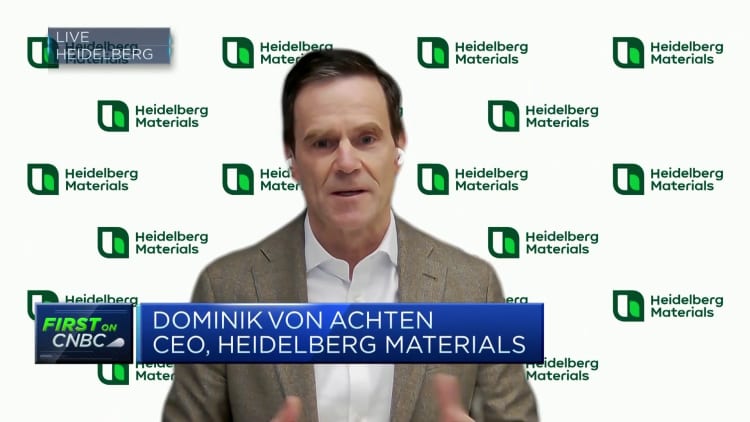
Luxury companies have not had it easy in recent years.
First came the pandemic, then an affordability crisis driven by high interest rates, and now, sluggish demand from Chinese shoppers has depressed business for several luxury players.
If there’s a respite in sight, the industry’s bellwether, LVMH, would be first to know as it’s the largest luxury group in the world.
But it looks like the fortunes haven’t turned just yet. On Tuesday, LVMH reported a revenue of €41.7 billion for the first half of this year, shrinking by about 1% compared to the same period in 2023.
Organic revenue in its largest business segment—fashion and leather goods, including brands like Loewe and Celine—rose by 1%. Meanwhile, the selective retailing unit, which houses Sephora, jumped by 8%. Its wine and spirits segment’s sales fell 9% year-over-year.
“Continued economic and geopolitical uncertainties are still impacting certain businesses, notably wine and spirits,” LVMH CFO Jean-Jacques Guiony said during the company’s earnings call on Tuesday.
“Some of our brands are indeed enjoying stellar growth rates. But I think we should also highlight the timeless appeal of our flagship brands that meets fast-evolving consumer tastes.”
Results in Asia (except Japan) point to why LVMH has fallen behind—organic sales dipped by 14% in the three months to June after a 6% drop in the first quarter of 2024. While China continued to remain a weak spot for the luxury behemoth, Chinese travelers splurged overseas and boosted sales in Japan, thanks to a weak yen.
“While remaining vigilant in the current context, the group approaches the second half of the year with confidence,” LVMH’s chairman and CEO Bernard Arnault said.
LVMH ushered in the year triumphantly after a strong holiday season, with a 10% sales surge in the last three months of 2023. It looked like the luxury industry could turn a new leaf. But in Q1, the Arnault-owned company faced a slowdown in growth as people continued to pull back on spending.
LVMH’s Guiony said he was “quite happy” with the outcome as it looked based because of a high base in early 2023 following the scrapping of China’s zero-COVID policy.
Some of LVMH’s high-end competitors have struggled in recent months. For instance, Swiss giant Richemont, which owns Cartier and Piaget, saw flat sales owing to Chinese shoppers’ poor appetites.
Meanwhile, Gucci-owner Kering has also faced the impact of consumers shunning luxury purchases. Other relatively small players have been decimated by this trend, too—Swatch’s profits fell 70%, while Burberry has issued multiple profit warnings over its slumping sales.
Few have dodged making losses in their China business—the bag-maker Hermes is an outlier. It’s continued to see growth in sales even while other high-end bag and apparel companies failed to do so.
LVMH’s struggle with improving sales in China won’t last forever, Mario Ortelli, managing partner of luxury advisory firm Ortelli&Co, told Fortune.
“After the booming recovery of luxury spend post-Covid, a normalisation in the pace of growth is not surprising, especially considering the current subdued economic environment in Asia. However, as soon as the economic environment improves, we should expect an acceleration of the luxury spend,” he said.
“The silver lining in LVMH results is that despite the difficult market conditions LV and Dior were able to keep their sales levels with just a limited decrease of profitability.”
The French luxury conglomerate’s Italian subsidiary, which makes Dior goods, is also being investigated over alleged worker exploitation practices. During LVMH’s earnings call, Guiony said the company wasn’t aware of the situation but accepted “full responsibility for what happened” and would ramp up audits of its supply chain in response.
Credit: Source link














